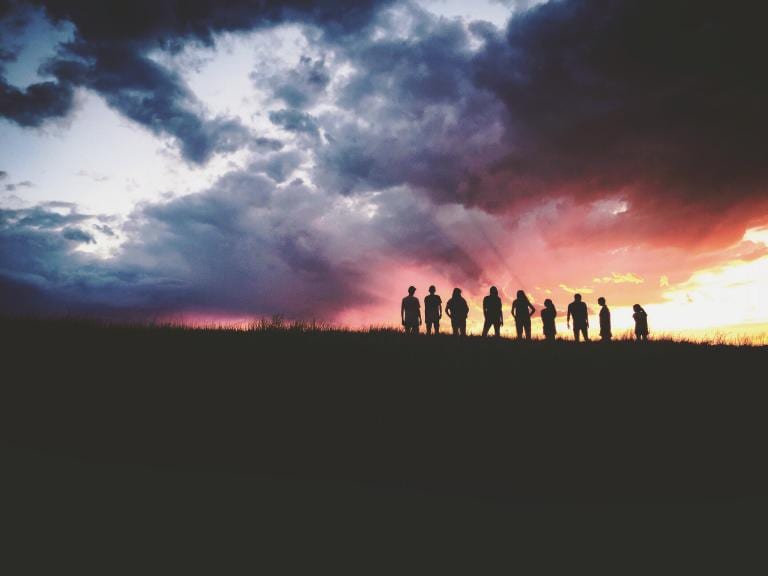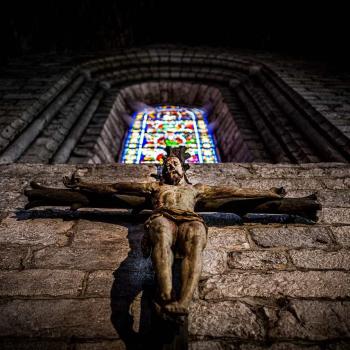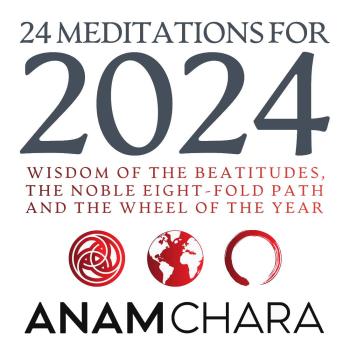A reader recently wrote to me:
Dear Carl, I grew up as a Protestant, but as I’ve journeyed into Contemplative Christianity over the last while I’ve become more amenable to Roman Catholicism. I have been wondering about lay orders and how to connect with the contemplative tradition through a lay order. I was wondering if you could shed some light on which lay orders there are (main ones) and what the main focus is in each one, and specifically which one, if any, “carries the most weight” of the contemplative tradition. I should note that I have a particular affinity for St. Francis of Assisi. I just read Chasing Francis and am captivated by Francis!
Thanks for your message.
As you know, there are many lay communities within the Catholic world, some but not all associated with the historic religious orders. Benedictine oblates, Lay Carmelites, Secular Franciscans, Lay Cistercians, Lay Dominicans… along with groups that may not be as well known but offer other opportunities for lay Catholics to associate, serve, learn and worship together, including Focolare, Society of Our Lady of the Holy Trinity (SOLT), and of course, the notorious Opus Dei. Some of these groups are for lay people specifically, while others offer membership to both lay, ordained, and consecrated religious Catholics.
So there are many groups to choose from! Each group has its own charism or identity based on the group’s gifts or mission or history. To put in more down-to-earth language, some groups are more conservative, others more progressive, others more charismatic, others more apostolic (service/outreach oriented) and so forth. You describe yourself as on a journey “into contemplative Christianity” (which is beautiful) and I think it’s important to consider that not all Catholics (or Catholic groups) consider contemplation a priority. Some groups are even hostile to some forms of contemplative practice, like Centering Prayer, which they see as too interfaith-friendly.
Complicating matters further is that groups or fraternities within lay orders are like parishes — each one has its own identity. I’m a Lay Cistercian and I can tell you after more than 13 years of involvement (and getting to know Lay Cistercians across the country and even the world), different LC communities have each their own “personality” and some are more contemplative than others, some more academic/theological, some more devotional, etc. So it’s not just about getting to know the overall charism of the order, but also getting to know the character of your local fraternity or group affiliated within that order.
For what it’s worth, in the past few years I’ve become active with Contemplative Outreach, which of course is an ecumenical group dedicated to learning and practicing Centering Prayer. I find that it is a much more supportive and formative environment for my own contemplative practice. That may just be because my “home” Lay Cistercian community is, in all candor, not as contemplative as I would like it to be (our founding monastic advisor was a lovely old monk but much more charismatic than contemplative in his spirituality, and of course his personality put its stamp on the group at large). But my point is that if you want contemplative community, perhaps your first priority should be to look at specifically contemplative organizations, even if they are not necessarily structured as lay orders.

And I think it’s important to keep in mind that even if a lay group has a historical tie to some of the great mystics (for example, Lay Carmelites can claim Teresa of Ávila and John of the Cross as “their own”), that does not guarantee any particular commitment to contemplative practice or immersion into mystical theology on the part of the group. The group will be more shaped by the personalities of its current leadership than by the profile of its historical saints.
Which leads us to your interest in Franciscan spirituality. I’m not a Secular Franciscan but I have led retreats on Franciscan spirituality and for Franciscan groups. I find Franciscan spirituality to be very rich and beautiful, a healthy integration of both down-t0-earth and contemplative/mystical strands of spirituality. So I do hope you will explore them. Furthermore two of the most helpful contemplative writers active today are Franciscan: Richard Rohr and Ilia Delio. Historically, in addition to St. Francis and St. Clare you’ve got great mystics like St. Bonaventure, Angela of Foligno, John Dun Scotus, and Thea Bowman. So there is plenty of rich material that your local Franciscan fraternity can draw on.
Now, you mentioned being raised Protestant and becoming “more amenable” to Roman Catholicism, but you did not specify whether you actually have become a Catholic or not. That of course is a very personal decision that can often have big consequences (families and friends often can be unsupportive of such a move). I bring this up because the Franciscans, in particular, have grown beyond the confines of institutional Catholicism — this is true of some of the other orders as well: you can be a Protestant and still become a Benedictine Oblate or a Lay Cistercian, depending on the customs of the local monastery or community — some welcome non-Catholics, some don’t. So you would need to check out the culture of your local group or monastery.
But back to the Franciscans: there are, in addition to the Secular Franciscan Order within Catholicism, two other groups worth knowing about: an Anglican Society of Saint Francis, and the Order of Ecumenical Franciscans. Neither of these groups require you to be a practicing Catholic in order to join (SSF might want you to be an Anglican, though — I’m not a member so I don’t know for sure, but you can see what they say if you contact them). I’m not trying to dissuade you from becoming a Catholic, but I do think it’s good to know that there are opportunities for groups like this beyond the institutional boundaries of Catholicism. In my experience, non-Catholics who explore contemplative spirituality (whether through Contemplative Outreach, a lay order, or just privately) tend to appreciate the good and beautiful dimensions of Catholicism, even if they remain primarily anchored in a non-Catholic faith community. That kind of ecumenical friendliness is, it seems to me, the work of the Holy Spirit!
So, to summarize:
- There are many different lay orders within Catholicism, and even extending beyond the boundaries of the institutional church;
- Each order as a whole has its own personality or “charism”; furthermore, individual fraternities or groups within each order has its own character as well;
- Some groups are more contemplative than others, and some might even be biased against some forms of contemplative practice;
- If your main goal is a contemplative community, consider explicitly contemplative organizations like Contemplative Outreach or World Community of Christian Meditation, both of which have Catholic roots but today are ecumenical in their scope;
- Because of your interest in Franciscan spirituality, consider exploring one of the non-Catholic Franciscan communities;
- Try to see the decision whether or not to become Catholic and the decision whether or not to join a lay order as two separate matters. You can do one without doing the other.
I hope this is helpful. Please let me know if you have further questions.
Featured photo by Hudson Hintze.














